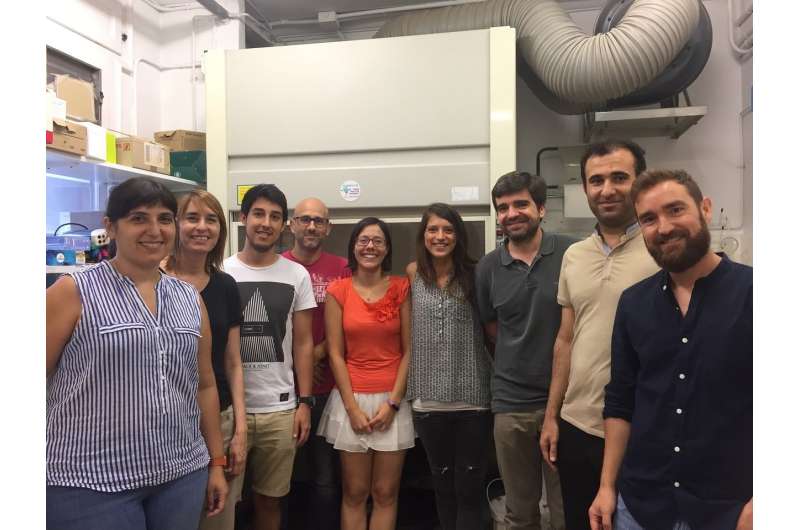The study was carried out by the research group led by Manuel Vázquez Carrera, researcher from the Faculty of Pharmacy and Food Sciences and the Institute of Biomedicine of the UB (IBUB). Credit: Universidad de Barcelona
A study led by the University of Barcelona has proved that low-density proteins (VLDL) can worsen insulin resistance, a disease that favours the development of type 2 diabetes. According to the researchers, these results, obtained in mice, point that the increase of VLDL, the particles that carry lipids such as triglycerides in the blood, can benefit insulin resistance, thereby increasing the risk of this type of diabetes. The study was published in the scientific journal Diabetologia.
Insulin is a hormone secreted by the pancreas that transports glucose into cells. Insulin resistance is the condition in which normal amounts of insulin are not enough to fulfil their role. This situation can cause type 2 diabetes, which, if not properly controlled, can cause problems in the blood circulation, heart, eyes, kidneys and other organs.
The study was conducted with mice muscle cells, which use more glucose as a response to insulin, and check the impact of the VLDL increase on insulin resistance. "We knew insulin resistance causes atherogenic dyslipidaemia, caused by an increase of VLDL, and therefore triglycerides, which ends up causing a decrease of HDL cholesterol and of the smallest and most dense LDL cholesterol particles which are related to an increase of the risk of suffering from a cardiovascular disease. However, the effect of VLDL on insulin resistance was unknown," says Manuel Vázquez Carrera.
Results show that VLDL can cause insulin resistance, which precedes and predicts the development of type 2 diabetes. "These lipoproteins induce endoplasmic reticulum stress, which favours inflammation and insulin resistance. We proved that the VLDL compound which favours these processes would be an apolipoprotein part of the VLDLs, the apo CIII," says the researcher.
Reducing triglycerides
According to the researchers, this study shows the need to pay more attention to the increase of triglycerides in patients with diabetes, and it opens the door to designing more aggressive treatments in order to reduce those. "Given the situation that these results seem to pinpoint that triglycerides are another factor leading to insulin resistance and type 2 diabetes, a better control of VLDL-triglycerides could be a proper therapy to reduce the risk of suffering from this disease" says Manuel Vázquez.
"The next goal for the group is to prove in patients that this strategy which aims to reduce aggressively the triglycerides can delay or prevent the development of insulin resistance and type 2 diabetes," says the researcher.
More information: Gaia Botteri et al. VLDL and apolipoprotein CIII induce ER stress and inflammation and attenuate insulin signalling via Toll-like receptor 2 in mouse skeletal muscle cells, Diabetologia (2017). DOI: 10.1007/s00125-017-4401-5
Journal information: Diabetologia
Provided by University of Barcelona






















